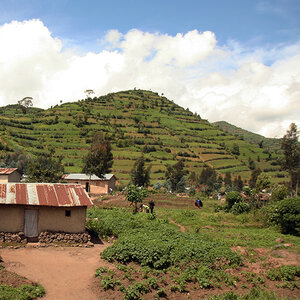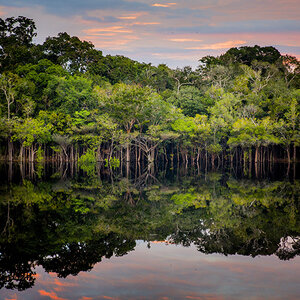Bezos Earth Fund awards $22.8 million for land restoration in Africa

The Bezos Earth Fund has announced eight grants totaling $22.8 million to accelerate locally led and managed land restoration projects across four countries in East and Central Africa.
Part of the Earth Fund’s $1 billion commitment in support of landscape restoration globally, the grants will enable the restoration of more than 600,000 hectares (2,300 square miles) of degraded land in the Greater Rift Valley, Kenya’s principal source of water and grain, and the Lake Kivu and Rusizi River Basin, which crosses the Democratic Republic of Congo, Rwanda, and Burundi as part of the second-largest rainforest in the world. According to the Earth Fund, the restoration projects will be able to sequester 42 million metric tons of carbon dioxide by 2050—the equivalent of taking more than 9.3 million gasoline-powered vehicles off the road per year.
The latest recipients include the Albertine Rift Conservation Society, the Barka Fund, World Agroforestry, the Green Belt Movement, Maliasili, the Rabo Foundation, Regeneration, and the World Resources Institute - Africa. The grants will fund multiyear, technical assistance support of grassroots organizations; the deepening of value chains to attract development, public, and private financing; improvements to native tree seed supplies; and the monitoring of land cover changes and the effects of restoration.
“Locally led and managed restoration efforts are more likely to deliver long-term success and can bring climate and biodiversity benefits along with economic prosperity for communities,” said World Resources Institute managing director Wanjira Mathai, who serves as the Earth Fund’s advisor for Africa.
“Africa is at the forefront of the restoration economy,” said African Union Development Agency head of climate change and environmental sustainability Mamadou Diakhité. “Thousands of entrepreneurs across the continent are demonstrating that landscape restoration is not just good for the environment but creates jobs and generates economic returns.”
(Photo credit: Getty Images/coophil)







